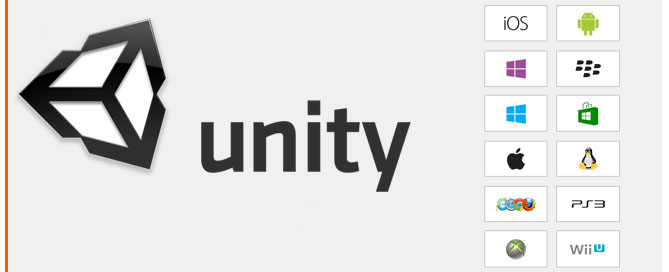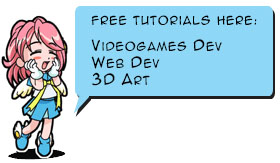Unity 3D Game Engine – Load Next Level
Syntax:
// Load the level named "level2".
Application.LoadLevel ("level2");
// Load the level index 1,
// you find this value inside Buil Settings> 'Scenes in Build'
Application.LoadLevel (1);
To improve performance a big game is broken over many levels.
Inside Unity3D you can use Scenes to create levels.
1. MAIN TOP MENU> File> New Scene, create 2 scenes: level1 and level2
2. Project window> DOUBLE CLICK over level1 to select the scene
3. MAIN TOP MENU> GameObject> Create Empty ‘GameController’> Inspector> ‘Add Component’> GameController.JS
#pragma strict
var scores : int;
function Start () {
scores = 10;
}
// On Click Counter START #########################
//This is the variable we are using to store the number of clicks
var clickCounter: int;
//This creates a button and adds +1 to clickCounter variable every 1 click
function OnGUI () {
if (GUI.Button (Rect (10,10,150,100), "You clicked:" + clickCounter)) {
clickCounter ++;
}
}
// On Click Counter END ###########################
function Update () {
if (clickCounter > 10) {
scores = 20;
// Load the level named "level2".
Application.LoadLevel ("level2");
}
} // END Update
4. MAIN TOP MENU> File> Buil Settings> DRAG AND DROP level1 and level2 scenes over ‘Scenes in Build’ window
Add the scenes into Build or Application.LoadLevel (“level2”); will not work!
When you click 11 times over the GUI.Button, level2 will be loaded.




